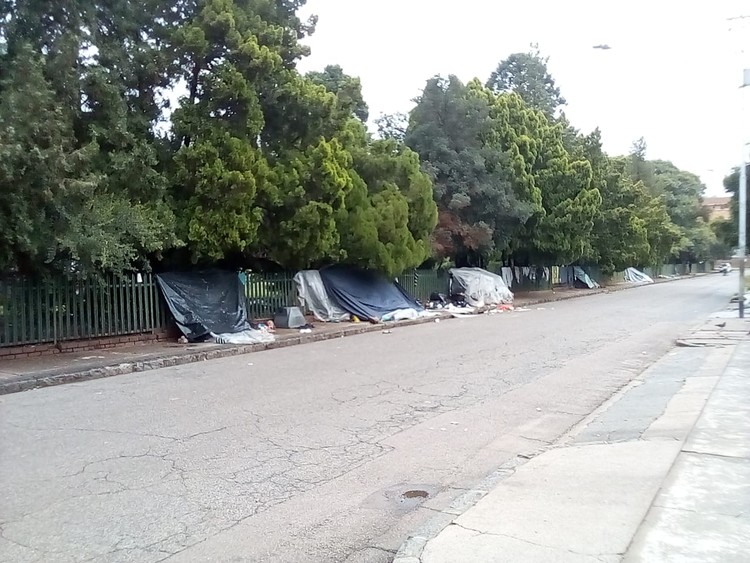Tshwane shelters call for help as winter approaches
Only 2,300 people have a place in shelters in Gauteng
Shelters in Tshwane are calling for donations to help house homeless people during the winter. Photo: Ezekiel Kekana
Tshwane shelters are calling for help as winter comes to the highveld, leaving hundreds of people they house in need of blankets and clothing.
“The residential facilities we have are usually old, and get severely cold in winter. We need hot water bottles, warm pyjamas, socks, beanies, slippers and gowns,” says Wilna De Beer, chief executive officer of Tshwane Leadership Foundation.
The Foundation is one of 27 organisations which runs shelters funded by the Gauteng Department of Social Development in Tshwane. According to the Department, the number of registered homeless people in the shelters in the province was 2,314 in March. The Department only counts the number of homeless people registered and living in these shelters, not people living on the street.
City of Tshwane Mayoral Committee Member on Social Development, Peggy De Bruin, acknowledges there’s “no official figure of homeless people in the City.” But on every corner of the city centre there are homeless people.
The Foundation has seven residential care facilities in total: the Potter’s House (20 women and their children), Lerato House (15 teenage girls), The Inn (40 older persons), TAU Village (20 older men with chronic illness), Gilead community (40 people including those living with mental illness, terminally ill people, older people with mental illness as well as chronic illnesses), Tswelelang (eight men), and Burgerspark house (eight women).
De Beer expects more people to come to the shelters as winter approaches. She says the organisation needs help to buy material for winter. “We have a need for blankets, pillows, linen and towels.”
At Kitso Lesedi, which shelters 343 people, there are not enough beds and blankets for the winter, says chief executive officer Maki Tselapedi.
The Gauteng Department of Social Development spokesperson, Feziwe Ndwayana, acknowledges that some of the shelters it finances have worn-out beds and blankets and others do not have beds at all. The Department budgeted R87.5-million to deal with homelessness in 2022-3 compared to about R84-million in 2021-22.
De Beer said the work was staff-intensive and the shelters battled to pay decent salaries.
Eric Nkuna says he prefers to live in the streets of the city centre, begging for food so that he can take his medication. Nkuna, from Giyani in Limpopo, says shelters are not safe. “There’s always fights in those places and I can easily lose my life there.”
Violet Ramabodu says she only goes to the shelters when she needs food and clothes. “I cannot stay there full-time because there are too many rules and I cannot be controlled by people.”
De Bruin urged homeless people to use the shelters. She said shelter management reports any violence to the police.
Support independent journalism
Donate using Payfast

Don't miss out on the latest news
We respect your privacy, and promise we won't spam you.
Next: Diepsloot business owners take on Gauteng Premier
Previous: One in four preschool children is malnourished, new study finds
© 2022 GroundUp. This article is licensed under a Creative Commons Attribution-NoDerivatives 4.0 International License.
You may republish this article, so long as you credit the authors and GroundUp, and do not change the text. Please include a link back to the original article.
We put an invisible pixel in the article so that we can count traffic to republishers. All analytics tools are solely on our servers. We do not give our logs to any third party. Logs are deleted after two weeks. We do not use any IP address identifying information except to count regional traffic. We are solely interested in counting hits, not tracking users. If you republish, please do not delete the invisible pixel.

